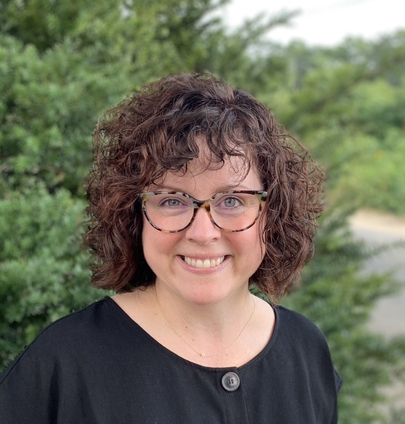
Q&A with Simone Rinaldi, MSN, ANP-BC, ACHPN
August 28th, 2020
Simone Rinaldi, MSN, ANP-BC, ACHPN is Nursing Director of the Division of Palliative Care and Geriatric Medicine and Co-Director of the Palliative Care Clinic at Massachusetts General Hospital. Simone is also Director of the MGH APRN Fellowship within the Harvard Interprofessional Palliative Care Fellowship, and Course Director for Art & Science of Palliative Nursing.
Tell us about your background.
I am from western Massachusetts. As a kid you would have found me on my bike, roller-skating, or building forts in the woods. I also loved to read. I attended a Catholic elementary school and spent eight years with the same small group of kids, though many of them came from other towns. As a result, outside of school, I spent a lot of time on my own engaged in a rich world of make-believe. A favorite involved pretending I was the Bionic Woman (a.k.a. Lindsay Wagner) and building complex obstacle courses that I had to master as part of my under-cover mission.
Within weeks of starting at the public high school my mother died. Her death came as a complete surprise though she had been diagnosed with lung cancer 6 months prior. It was an incredibly challenging time. I was 14, desperate to make friends in my new school, and to re-establish some sense of normalcy. It was not until many years later that I could process what this loss meant for me and my family. It shaped the whole of my life.
Fortunately, I did find my way through high school. I went to the University of Massachusetts at Amherst and studied Critical Social Thought, in a multidisciplinary program through the Social and Behavioral Sciences Department that included coursework in philosophy, political science, sociology, and economics. It involved examining the social/economic constraints upon individual autonomy with the goal of then engaging in work that promoted social justice. After graduating I worked for an agency that provided crisis counseling/advocacy for sexual assault survivors and another for women experiencing domestic violence.
Why did you decide to work in palliative care?
I graduated college in the midst the HIV epidemic. I had a very close friend with HIV disease who was struggling with severe anxiety and poorly managed gastrointestinal symptoms. He would often describe the utter despair and loneliness he experienced “living my life on the toilet” without any hope of getting to a better place. He committed suicide. It was a devastating experience that, as I worked through it emotionally, demanded I revisit earlier losses. I emerged from that experience with a sense that there had to be a better way for patients (and the people that loved them) to navigate serious illness. I started to explore nursing programs and got a part-time job as a nursing assistant in a SNF. I applied to nursing school 6 months later. At the time, nursing appeared to be a practice aligned with my study of critical social thought – as it seeks to understand the determinants and experience of health/illness in order to promote optimal health for each patient. I was also searching for a way to transform painful experiences into positive and meaningful action – to help with the suffering of others, and in this way, to relieve my own. I wanted some control, even if illusory. I was intent on developing a skill set that would allow me to care for my family/friends in the future (believing I had failed them in the past). Lastly, I think I wanted a vantage point from which to explore death/dying, hoping to become less afraid of death, and to understand its lessons about how to live.
What is your favorite part of your job?
A large part of my role within our division involves developing/optimizing clinical operations. I enjoy figuring out how to create structure and processes that support the clinical work. Efficiency, efficacy, and safety are all important - but what I find deeply satisfying is witnessing how strong clinical operations can aide in the creation of robust, cohesive, resilient, and highly functioning teams; serve as the foundation for healthy and collaborative relationships with our referrers/colleagues; and create an environment of trust for our patients.
What is the most helpful advice you have received?
I am not sure of where I first heard this, but “it’s better to be kind/connected than to be right” has become a guiding principle for me (coupled with an “approach of curiosity” learned through my work in palliative care). This feels essential in all my relationships – as a colleague, manager, friend, partner, and parent – but particularly in my clinician role. Being curious about the patient’s experience/perspective/behavior, and from this place of greater understanding, aligning with them as they navigate life threatening illness, is ultimately transformative for patients, families, and clinicians.
If you were stuck on a deserted island, what entertainment would you bring?
I would bring my audible subscription (and an endlessly charged apple device) so that I could continue to listen to crime fiction (particularly British and Scandinavian) and post-apocalyptic thrillers.
